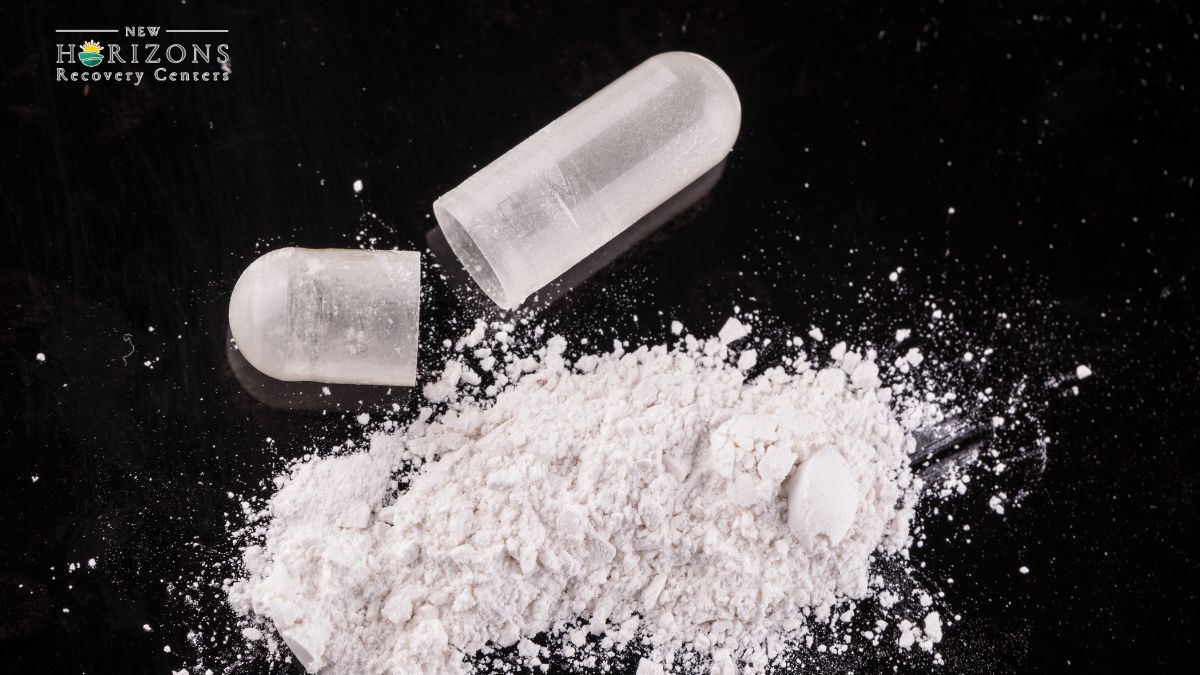
The Role of Peer Support in Recovery
Peer support plays a vital role in the journey of recovery from addiction. By providing nonprofessional, nonclinical assistance, individuals with similar conditions or circumstances can help each other achieve long-term recovery from psychiatric, alcohol, and/or other drug-related problems.
Definition of Peer Support
Peer support can be defined as the process of giving and receiving assistance from individuals who have successfully overcome addiction and can offer guidance to others who are struggling [2]. It is similar to having a sponsor in Alcoholics Anonymous or another type of addiction support group. Peer supporters are individuals who have personal experience with addiction and have achieved long-term recovery. They provide support, encouragement, and understanding based on their own experiences.
Benefits of Peer Support
The benefits of peer support in recovery are significant. Peer support reduces drug use and decreases the rate of relapse in recovering individuals. It provides a support system that helps prevent relapse after addiction treatment, reducing negative feelings that can trigger drug use, such as isolation or anxiety.
By connecting with peers who have gone through similar experiences, individuals in recovery feel less alone and more understood. Peer support helps to build a sense of community and belonging, fostering a supportive environment that encourages accountability and sobriety. It allows individuals to make friends with similar experiences, reducing the stress on family members who may feel responsible for ensuring their recovery [2].
Engaging in peer support increases treatment satisfaction and improves the overall quality of life for individuals in recovery. It provides an additional layer of support beyond clinical treatment, empowering individuals to take ownership of their recovery journey. Peer support groups have shown benefits in substance use, treatment engagement, and secondary substance-related behaviors such as craving and self-efficacy.
In the next sections, we will explore the role of peer support workers in recovery, the different peer support services available, and the effectiveness of peer recovery support in achieving improved treatment outcomes.

Peer Support Workers in Recovery
Peer support workers play a vital role in the journey of recovery, providing valuable support and guidance to individuals seeking to overcome addiction. Let's delve into the responsibilities of peer support workers and the importance of acquiring additional skills in this role.
Responsibilities of Peer Support Workers
Peer support workers engage in various activities that contribute to the recovery process. They offer emotional support, share resources, and advocate for individuals in recovery. Some of the key responsibilities of peer support workers include:
Importance of Acquiring Additional Skills
To effectively cater to the diverse needs of individuals in recovery, peer support workers may need to acquire additional skills. This is particularly important when working with specific groups that share common experiences, such as family members affected by addiction.
By acquiring additional skills, peer support workers can enhance their ability to provide targeted and effective support. Some areas where additional skills may be beneficial include:
By expanding their skill set, peer support workers can offer comprehensive and tailored support to individuals in recovery, fostering a sense of empowerment and increasing the likelihood of positive outcomes.
Peer support workers are an invaluable resource in the recovery process, providing support, guidance, and hope to individuals seeking to overcome addiction. Their contributions, backed by evidence-based practices, have been shown to improve treatment retention and recovery outcomes. Through their dedication and acquired skills, they play a vital role in helping individuals navigate the challenges of addiction recovery and build fulfilling lives in recovery.

Peer Support Services
Peer support services play a crucial role in the recovery journey, expanding the reach of treatment beyond clinical settings and into the everyday lives of individuals seeking sustained recovery. These services, such as peer support groups, have shown positive impacts on various aspects of recovery, including self-efficacy, social support perceptions, quality of life, and reducing feelings of guilt and shame associated with addiction. Let's explore two key aspects of peer support services: expanding treatment reach and the activities of peer support workers.
Expanding Treatment Reach
One of the key benefits of peer support services is their ability to extend the reach of traditional treatment programs. Peer support groups, for example, provide a safe and supportive environment where individuals can connect with others who have shared similar experiences. These groups, often facilitated by trained peer support workers, offer a sense of belonging and understanding that can be invaluable during the recovery process.
By breaking down barriers and stigma associated with addiction, peer support services encourage individuals to seek help and engage in treatment. These services have been associated with increased attendance at outpatient substance abuse treatment appointments post-discharge compared to standard treatment alone [1]. This highlights the effectiveness of peer support in promoting engagement and retention in treatment, ultimately enhancing the chances of successful recovery.
Activities of Peer Support Workers
Peer support workers, also known as peer recovery coaches or peer mentors, play a vital role in providing support and guidance to individuals in recovery. These individuals have firsthand experience with addiction and recovery, making them uniquely qualified to relate to and empathize with those going through similar challenges. Their own recovery journey serves as a source of inspiration and hope for others.
The activities of peer support workers vary based on the needs of individuals in recovery. They provide emotional support, actively listen, and share resources to help individuals navigate the complexities of the recovery process. Peer support workers may also advocate for their clients, ensuring their voices are heard and their needs are met. They facilitate the development of coping skills, provide information about community resources, and assist with goal setting and planning for a healthy and fulfilling life in recovery.
By serving as role models and mentors, peer support workers inspire hope and instill a sense of empowerment in individuals seeking recovery. Their lived experiences and the support they provide can make a significant difference in the recovery journey, promoting resilience and fostering a sense of community.
As peer support services continue to gain recognition and support, their impact on addiction recovery becomes increasingly evident. These services not only expand the reach of treatment but also provide individuals with the support, guidance, and connection necessary for long-term recovery.
Peer Support in Behavioral Health
When it comes to recovery from addiction, peer support plays a significant role in providing individuals with the necessary guidance and encouragement. Peer support workers, who have successfully overcome addiction themselves, offer invaluable assistance and understanding to others on the road to recovery. In the field of behavioral health, peer support is particularly crucial in supporting specific groups and promoting a sense of community.
Supporting Specific Groups
Peer support workers may need to acquire additional skills to cater to specific groups with shared experiences, such as family members affected by addiction. By providing support and guidance, peer supporters can help family members navigate the challenges they face and provide a sense of empathy and understanding. This peer recovery support relationship forms the basis of effective peer support in the behavioral health field [3].
Additionally, peer support can extend to other specific groups, such as veterans, LGBTQ+ communities, or individuals with co-occurring mental health disorders. Having peers who have faced similar challenges can create a safe and inclusive environment for individuals to share their experiences, seek guidance, and build resilience.
SAMHSA's Emphasis on Peer Support
The Substance Abuse and Mental Health Services Administration (SAMHSA) recognizes the importance of peer support in recovery and emphasizes its value in behavioral health systems. SAMHSA provides resources and training materials to promote the implementation of peer support services. This includes video trainings on peer support services and highlighting the impact that peers bring to the field of behavioral health [3].
SAMHSA's emphasis on peer support underscores the significance of lived experience and the unique perspective that peers can offer in the recovery process. By incorporating peer support into behavioral health systems, individuals can benefit from the understanding, empathy, and guidance that peers provide.
Peer support in behavioral health offers a safe and supportive environment for individuals on their journey to recovery. By connecting with others who have walked a similar path, individuals gain a sense of belonging, accountability, and empowerment. Peer support reduces feelings of isolation, provides valuable insights, and ultimately contributes to improved treatment outcomes and the overall well-being of individuals in recovery.
Effectiveness of Peer Recovery Support
When it comes to addiction recovery, peer support plays a crucial role in improving treatment outcomes and promoting long-term success. Numerous studies have evaluated the effectiveness of peer recovery support for individuals with substance use disorders (SUD) and have shown promising results.
Improved Treatment Outcomes
Research has demonstrated that peer recovery support services can lead to several positive treatment outcomes. Individuals who receive peer support often report improved relationships with providers and social supports, increased treatment satisfaction, and enhanced treatment retention [5].
Peer providers, who have lived experience with addiction and are trained to offer support, play a vital role in helping individuals navigate the challenges of recovery. They provide non-clinical roles that support recovery activities, such as abstinence or reduced substance use. The presence of peer support can significantly benefit both the recovery supporter and the individual in treatment for SUD.
Furthermore, peer support groups have been associated with significant reductions in relapse rates among addicts in recovery, particularly those living in permanent supportive housing. This indicates the importance of peer and community support groups in reducing relapse and managing long-term recovery [1].
Challenges and Need for Further Research
While the effectiveness of peer recovery support has been demonstrated in various studies, there are still challenges and areas that require further research. One limitation is that few studies have measured outcomes relevant to long-term recovery goals, such as re-admission to treatment. Continued research is necessary to explore the long-term impact of peer support on sustained recovery.
Additionally, it is important to recognize that peer support is not a substitute for professional treatment and should be viewed as a complement to evidence-based interventions. Peer support should be integrated into a comprehensive treatment plan that includes clinical care, counseling, and other appropriate interventions.
By acknowledging the effectiveness of peer recovery support and addressing the challenges through further research, we can continue to enhance addiction treatment outcomes and support individuals on their journey towards lasting recovery.
For more information on peer support and other strategies for addiction recovery, explore our articles on addiction recovery podcasts, alternative therapies for addiction, and family support in addiction recovery.
Peer Support Programs and Impact
Peer support programs play a crucial role in addiction recovery, offering individuals a sense of community, understanding, and guidance. These programs have a significant impact on reducing relapse rates and promoting healthy outcomes for individuals in recovery.
Reducing Relapse Rates
Peer support groups have been associated with significant reductions in relapse rates among addicts in recovery living in permanent supportive housing. These groups provide a support system that helps individuals avoid relapse after receiving addiction treatment. By connecting with peers who have experienced similar challenges, individuals can find the encouragement and accountability needed to maintain their sobriety. Peer support groups reduce negative feelings, such as isolation and anxiety, which are common triggers for drug use [2].
Promoting Healthy Outcomes
Peer support programs, including peer support groups, have shown positive impacts on various aspects of recovery. These programs contribute to improving participants' self-efficacy, social support perceptions, and quality of life. By fostering a sense of belonging and camaraderie, peer support groups reduce feelings of guilt and shame commonly associated with addiction. This support is crucial for individuals to achieve and sustain abstinence from substances.
Peer support services have also played a vital role in reducing the risk of HIV and HCV transmission among injection drug users. By engaging substance-using populations in treatment, peer support groups promote safer practices of injection drug use, leading to a decrease in the transmission of infectious diseases. These services provide education, support, and resources to help individuals make informed decisions and protect themselves and others.
In addition to reducing relapse rates and improving overall well-being, peer support programs offer individuals in recovery a sense of hope, inspiration, and motivation. Being surrounded by peers who have successfully navigated the challenges of addiction can instill a sense of possibility and belief in one's own ability to achieve long-term recovery.
By participating in peer support programs, individuals in recovery not only receive valuable guidance and support but also have the opportunity to give back and support others on their journey. This reciprocal nature of peer support fosters a sense of purpose and empowerment, reinforcing the commitment to sustained recovery.
In conclusion, peer support programs have a profound impact on addiction recovery by reducing relapse rates and promoting healthy outcomes. These programs provide individuals with the support, understanding, and encouragement necessary to navigate the challenges of recovery. By connecting with peers who have shared similar experiences, individuals in recovery can find hope, inspiration, and the strength to achieve long-term sobriety.
References
[2]:
[3]:
[4]:
[5]:

-ink.jpeg)

-ink.jpeg)



